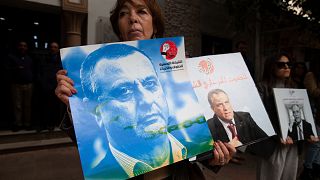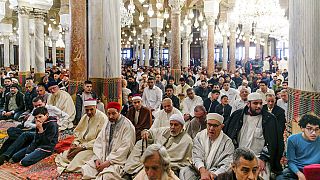Tunisia
Following the revolution of January 2011 Tunisians can now speak freely but this freedom still remains fragile.
Under the regime of ousted president Zine el Abidine Ben Ali, most Tunisians had their freedom curtailed and had lived under oppression for many years.
Since the revolution, dozens of newspapers, radio and private television channels have emerged.
“Nobody can deny that freedom of expression has been the main gain from the revolution,“said Néji Bghouri, president of the National Union of Tunisian Journalists (SNJT).
The revolution also led to the birth of dozens of associations and NGOs. From those that monitor the Tunisian parliament to those that specialize in the fight against corruption, and also some which campaign for the decriminalization of homosexuality.
Also, free and democratic elections were held and a new constitution proclaiming numerous rights and freedoms was adopted in 2014.
Suppression
According to Amnesty International, new evidence of the torture and deaths of detainees in police custody has emerged indicating a rise in repression as the government has sought to crack down on terrorism.
Amnesty said it had collected evidence showing that at least six people had died in police custody since 2011 and that detainees, including women, were tortured and mistreated in prison last year after being accused of terrorist activities.
“Torture and repression were hallmarks of former President Ben Ali’s regime,” Said Boumedouha, Amnesty’s deputy director for the Middle East and North Africa, said in the statement. “They must not be allowed to become defining features of post-uprising Tunisia.”
In 2015,students were subjected to an anal examination under prosecution for homosexuality, despite national and international NGO protests denouncing a practice “degrading” and calling for a reform of the Penal Code.
There has been little accountability for unlawful killings of protesters in response to the 2011 uprising, and an ongoing failure to reform the police and security apparatus.
As a result, torture continues to be reported, especially in pre-trial detention and during interrogations, and judges and prosecutors have done little to hold the authorities to account over torture and assaults on demonstrators and journalists.











Go to video
The EU moves to fast-track asylum claims by migrants from 7 countries to speed deportation
01:15
Tunisian President Saied dismisses prime minister amid political tensions
02:19
UN marks third anniversary of International Day to Combat Islamophobia
03:05
Ramadan : Nigerian Muslims use holy month to consolidate family bonds
02:03
Aga Khan V meets Portuguese President after father's passing
Go to video
A Tunisian extremist is on trial accused of killing 3 people in a French church